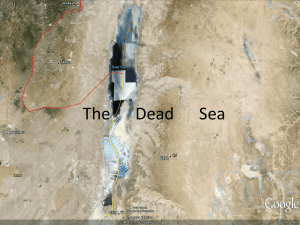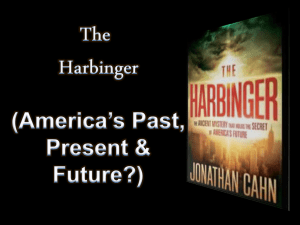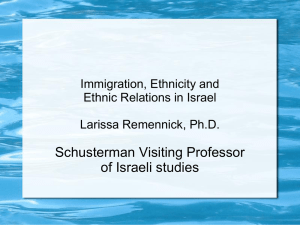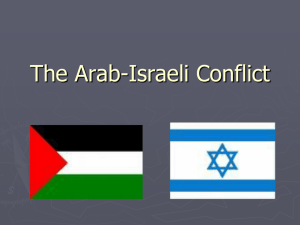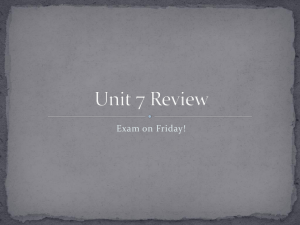Klal Israel Chai edited - Kingston Liberal Synagogue
advertisement
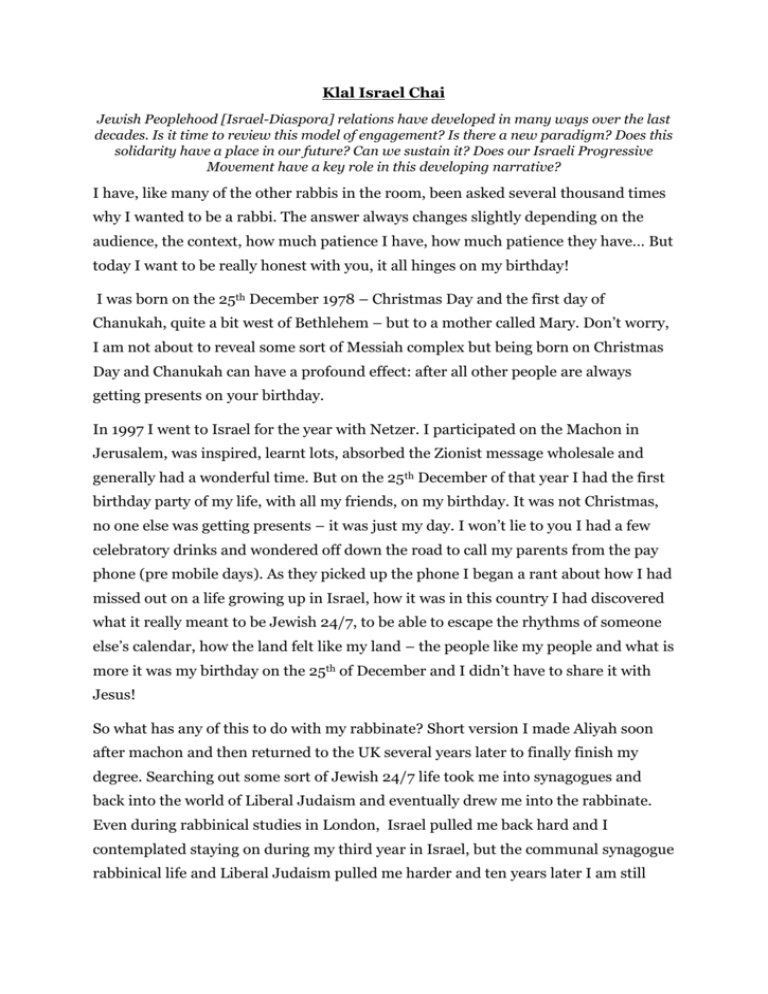
Klal Israel Chai Jewish Peoplehood [Israel-Diaspora] relations have developed in many ways over the last decades. Is it time to review this model of engagement? Is there a new paradigm? Does this solidarity have a place in our future? Can we sustain it? Does our Israeli Progressive Movement have a key role in this developing narrative? I have, like many of the other rabbis in the room, been asked several thousand times why I wanted to be a rabbi. The answer always changes slightly depending on the audience, the context, how much patience I have, how much patience they have… But today I want to be really honest with you, it all hinges on my birthday! I was born on the 25th December 1978 – Christmas Day and the first day of Chanukah, quite a bit west of Bethlehem – but to a mother called Mary. Don’t worry, I am not about to reveal some sort of Messiah complex but being born on Christmas Day and Chanukah can have a profound effect: after all other people are always getting presents on your birthday. In 1997 I went to Israel for the year with Netzer. I participated on the Machon in Jerusalem, was inspired, learnt lots, absorbed the Zionist message wholesale and generally had a wonderful time. But on the 25th December of that year I had the first birthday party of my life, with all my friends, on my birthday. It was not Christmas, no one else was getting presents – it was just my day. I won’t lie to you I had a few celebratory drinks and wondered off down the road to call my parents from the pay phone (pre mobile days). As they picked up the phone I began a rant about how I had missed out on a life growing up in Israel, how it was in this country I had discovered what it really meant to be Jewish 24/7, to be able to escape the rhythms of someone else’s calendar, how the land felt like my land – the people like my people and what is more it was my birthday on the 25th of December and I didn’t have to share it with Jesus! So what has any of this to do with my rabbinate? Short version I made Aliyah soon after machon and then returned to the UK several years later to finally finish my degree. Searching out some sort of Jewish 24/7 life took me into synagogues and back into the world of Liberal Judaism and eventually drew me into the rabbinate. Even during rabbinical studies in London, Israel pulled me back hard and I contemplated staying on during my third year in Israel, but the communal synagogue rabbinical life and Liberal Judaism pulled me harder and ten years later I am still working for both. Every time I step foot in Israel I feel like I have come home and yet each time I get back on plane and work to build our Diaspora Jewry. Why do I tell you this story, for no other reason really than to establish my credentials as someone who is firmly rooted in asking the question of what is the relationship between Israel and the Diaspora and what purpose does it serve in any of our identities. One of my roles for Liberal Judaism is to organise our national conferences, including a Biennial residential and a one day conference entitled Day of Celebration. This is a chance to celebrate the achievements of the movement over the past year, study and socialise together and showcase the work of our communities. Last year at the height of the troubles in Israel I decided that the theme of this year’s conference, which will take place in London in a few weeks, would be Israel. A phone call from the Chair of our movement was enough to indicate that this choice met with some surprise at best. During the present circumstances why would we choose of all things to do to celebrate Israel? Better, no to choose something less controversial, less likely to divide our communities, more celebratory less difficult? I am pleased to say ultimately we agreed that actually this was precisely the time to celebrate this relationship. Liberal Judaism has never been one to shy away from the difficult topics, it is a movement that has celebrated diversity of views and embraced the need to confront head on the things we struggle with. But to begin with we had to ask ourselves a question – and it’s the one this whole session is asking – what is the substance of this relationship? We know, at least anecdotally that many of our youth are turning away from a relationship with Israel, it is just too hard for many to engage – particularly during tensions. Indeed, there are many within our congregations who seek not to advertise their Jewish identity for fear of having to take responsibility for the actions of the Israeli government within their personal and work lives. Furthermore, we deal with an internal Jewish communal battle over the right to have an honest conversation about Israel. There are vocal parts of the British community who argue that any criticism of Israel helps to delegitimise the country and therefore should be quashed. There are those too who would argue why look to Israel for Jewish inspiration when we could look instead to America which has an equally large population of Jews and is creating creative and dynamic programming and seeking to develop sustainable Jewish life. But perhaps the biggest critique we hear is the question of whether Israeli society really cares about Diaspora life outside a need for financial support. So Rabbi Danny Rich the Senior Rabbi and CE of Liberal Judaism, Dr Ilan Baron, an academic specialising in Diaspora/Israel relationships and I went to Israel and we asked the question of as many people as we could in a short period. We met with journalists, think tanks, the World Zionist Organisation, IMPJ, rabbis and academics and each time we asked the same question – what is the relationship between Israel and the Progressive Jewish Diaspora and what should it be? First, is the health warning! It became quickly evident that it is easy to slide into a negative relationship. Too often we heard the idea that given what is going on in Europe, European Jews need Israel. That whether we like it or not we are going to be, as Jews, associated with Israel and therefore the sooner we accept that, the better. This goes nowhere for me as an argument. There is, of course evidence that European Jewry has experienced unprecedented, in recent times, levels of antiSemitism but in the UK at least and loudly articulated by our Movement most Jews do not have a bag packed, are not closing the doors of their homes and synagogues to people outside the community. Furthermore, we can do better than this! Relationship forced upon us can only end in resentment and the potential for creativity is defunct. A relationship where both parties choose to participate is certain to be far more fruitful. Indeed, I believe we need to seek a relationship that has at its core mutuality. A sense not only that we need each other but that this relationship has the potential to be mutually beneficial and creative. What might this require? First Progressive Judaism needs to develop a new religious Zionism – of course one which one which recognises the rights of others, one based firmly in the language of the Prophets – wedded to the pursuit of justice and one that also includes in the words of Dr Baron – ‘A Diaspora ethic’. But equally a religious Zionism that gives a new voice to the need to understand the land of Israel in order to understand our religion. One which wrestles away religious language from the hands of one segment of society and does not shy away from claiming it as our own. Secondly, in return Israel must recognise that the Diaspora deals constantly with some of the big questions which are equally relevant and central for Israeli progressive society, for starters’ inclusivity, diversity and egalitarianism. We have experience, programming and stories to share and be learnt from. In tandem Israel is experiencing a renaissance in Jewish culture and we need to explore how we as Diaspora can access this and develop it for our own communities. For this we need to develop more and more opportunities for encounters. Not only encounters that take place in Israel, but encounters that take place within the Diaspora. Just as many of our communities have prioritised trips to Israel, so too must we seek opportunities for Israelis to be within Diaspora communities. While the political situation is obviously one which can dominate the conversation and being informed and articulate remains a priority we need to expand the dialogue of these encounters into a wider sphere. Additionally, our voices are needed to support Israeli Liberal Zionists continue to campaign and battle for freedom and equality. Without our voices then the only ones who are heard are the centrists and right wingers. Ultimately together we are stronger. This requires a confidence in our right to speak, to not allow others either within the Diaspora or Israel to delegitimise this right. Current Diaspora Israel paradigms have failed to really take account of whether Israel actually needs the Diaspora and if so what she actually needs her for. Putting this question centrally on the table allows us to reformulate our relationship. There is no question that my context is a limited one. I have grown up within the Liberal movement in the UK and my work continues to be within this milieu, but with this proviso made clear, I can say that the current paradigm is failing and is failing our future generations. A model which seeks to place Israel as an inspirational light to which we look, to which we simply provide funding and some vague tourism, which we know is a safe haven towards which we can run should we need, is fundamentally flawed. An expectation that Israel should have a greater sense of morality is idealistic nonsense at best, we can desire it – dream of it, but fundamentally we must work together to inspire each other. Ultimately, however this only works if both sides accept the investment. Too often when we were in Israel, even in encounters with the Progressive movement, we heard an inability to articulate the centrality of the Diaspora in ways beyond unequivocal support and finance. We know and must recognise that there are tensions implicit in our relationship, many will know of the Progressive Diaspora’s struggle with Zionism at its inception and how far we have travelled. We know that segments of our world Jewry see Aliyah as the only answer, but I would strongly argue that it is one choice to make and another equally valid one is to be part of building an inspired Diaspora. So as a leader within Progressive Judaism in the UK I want to help create and participate in a relationship where it is clearly understood and articulated that both Diaspora and Israel have their clear roles to play, that individually they can do much but only in a relationship that does not value one over the other and that feels fully invested in the development and growth of the other, can we ensure that the generations that come after us are able to say klal yisrael chai!




